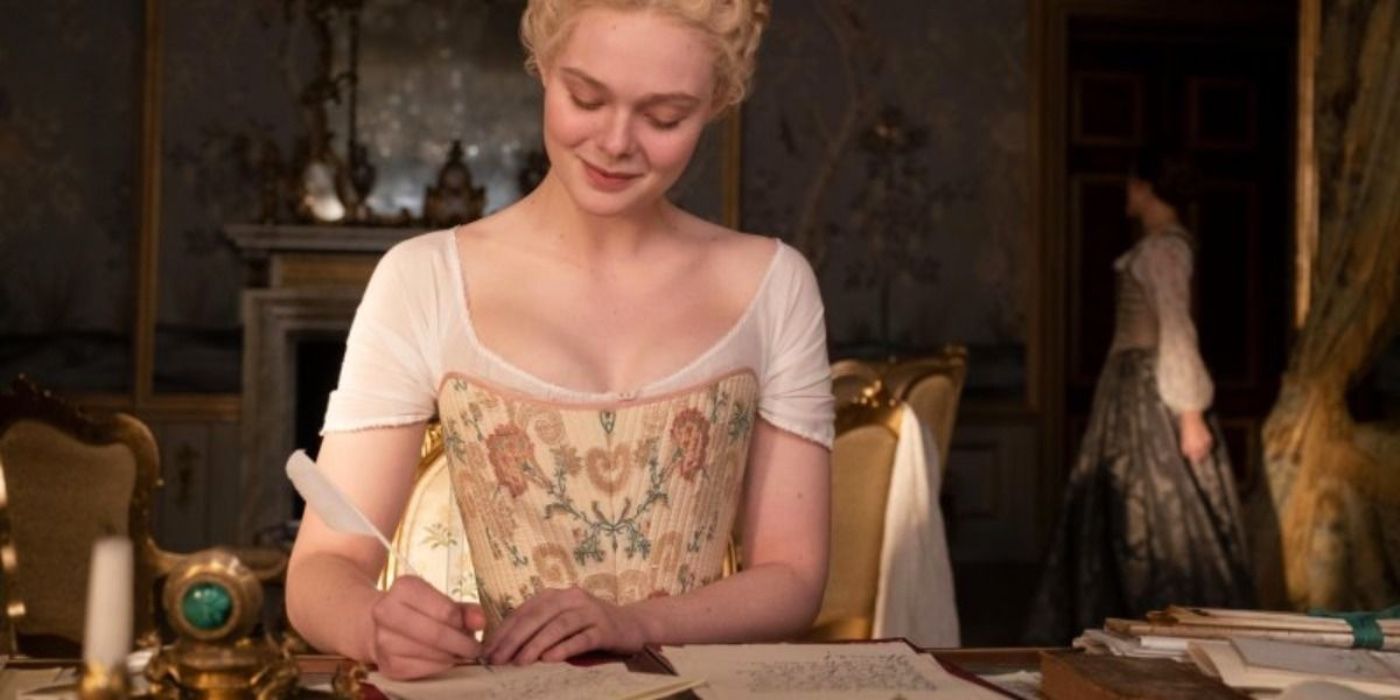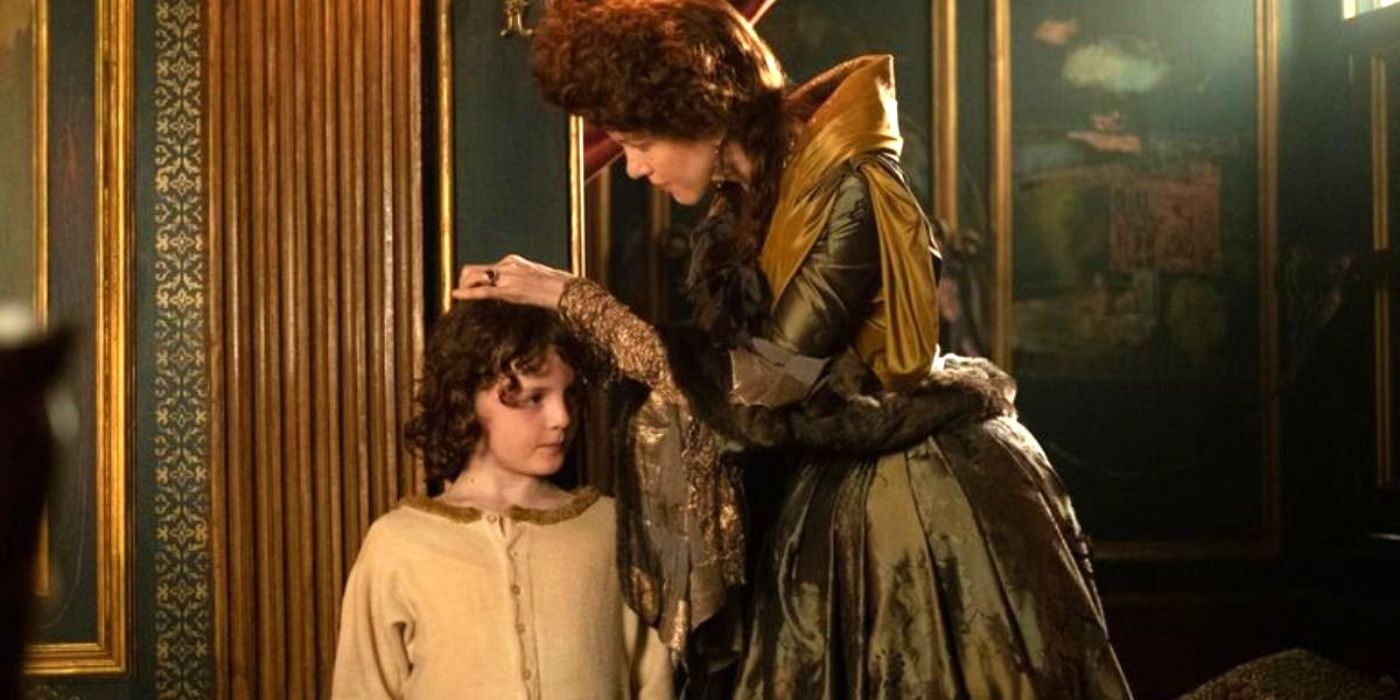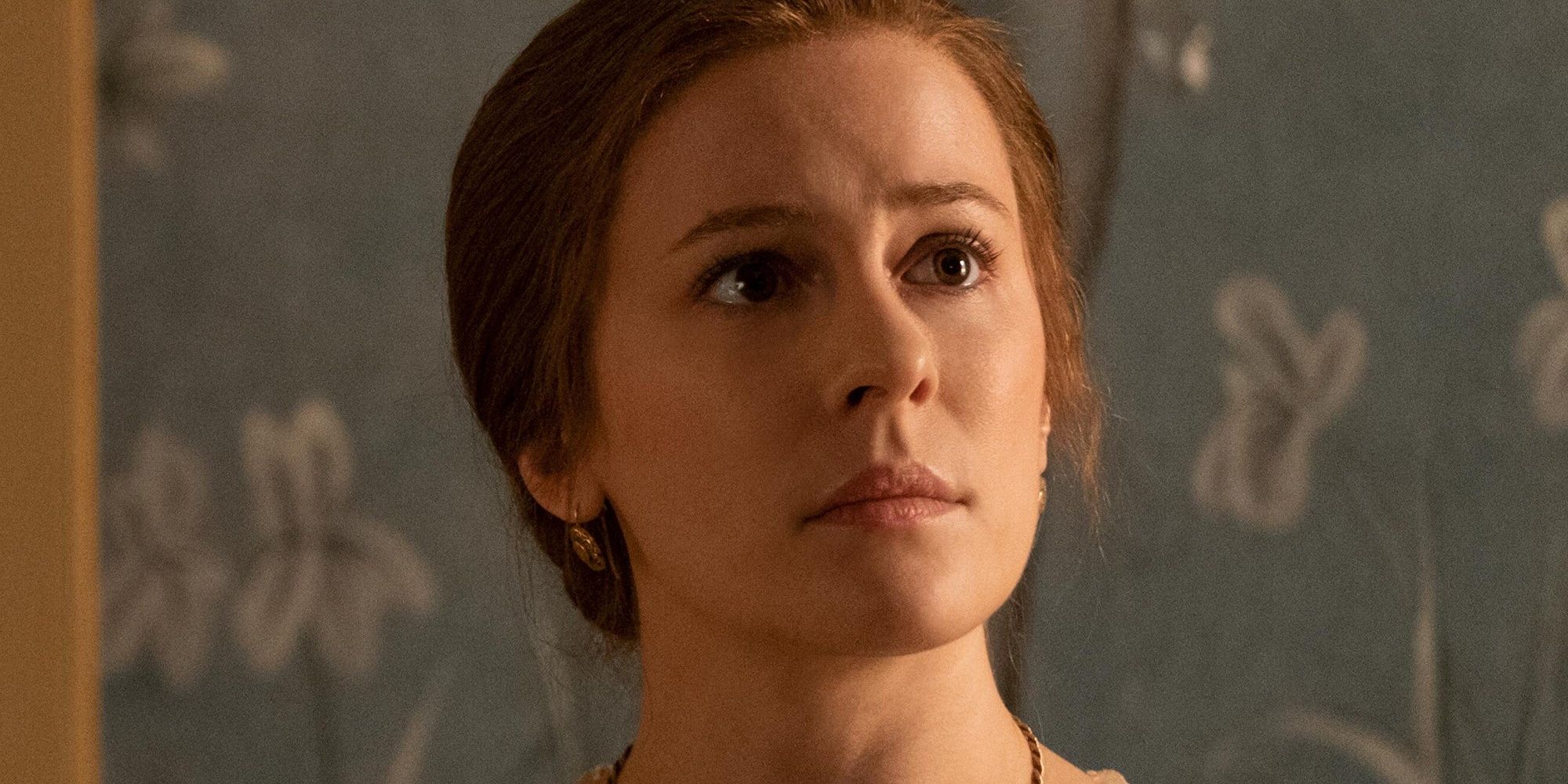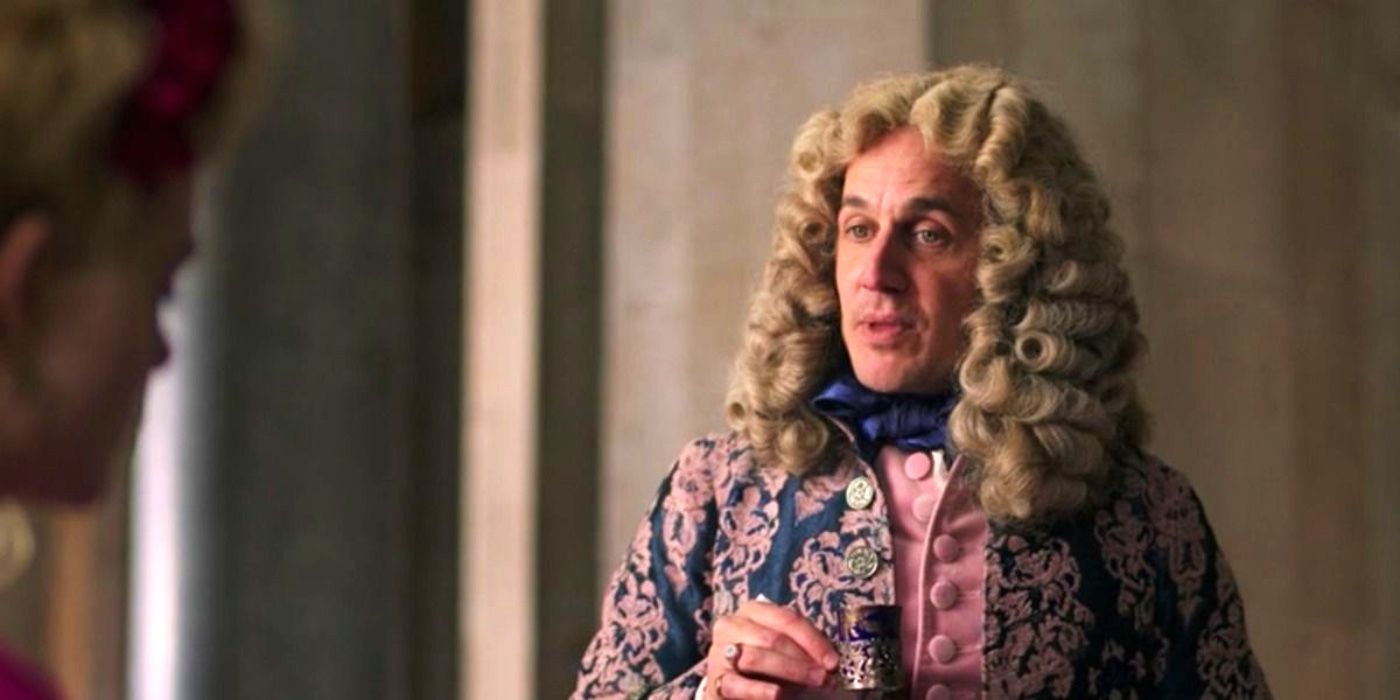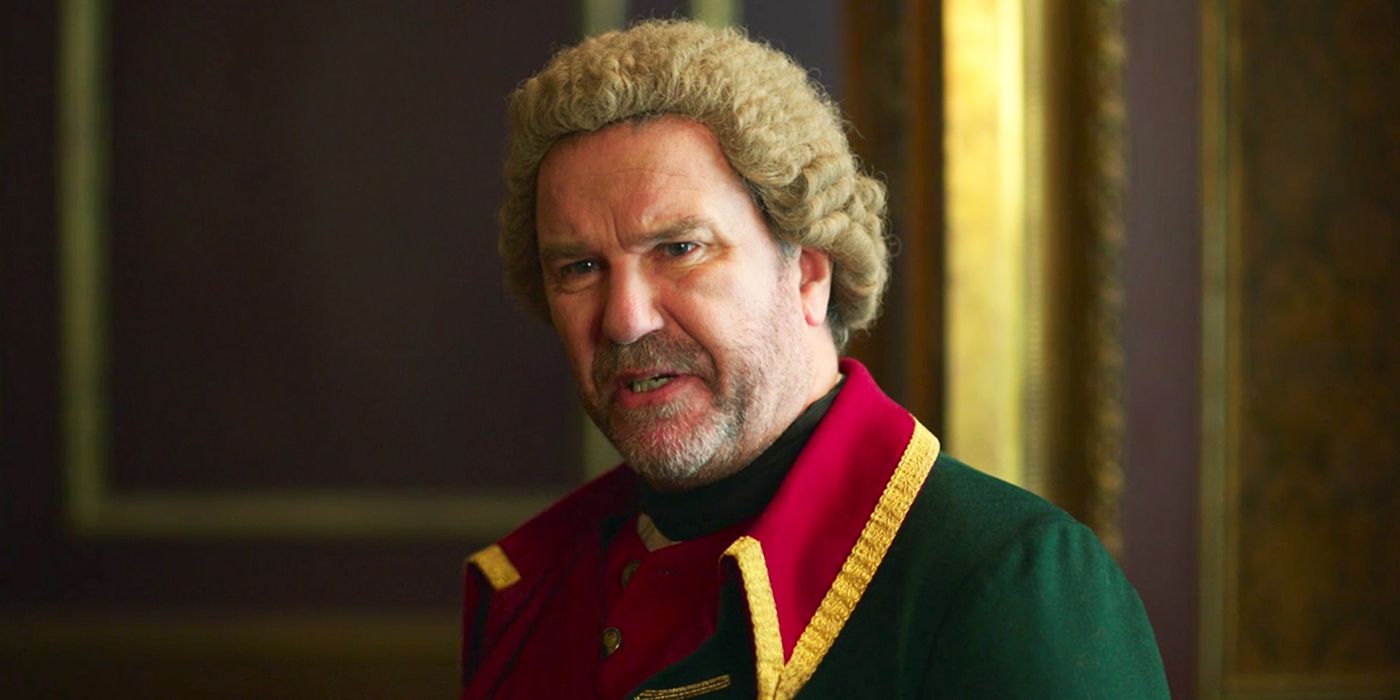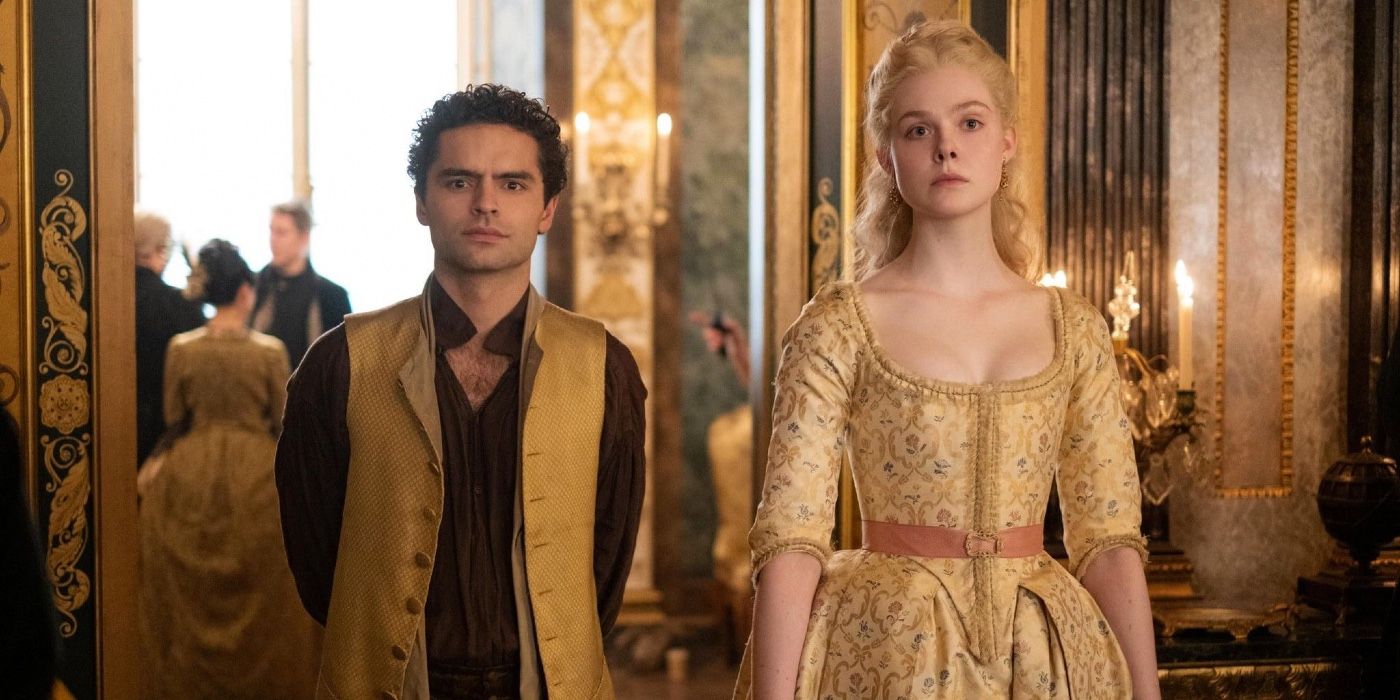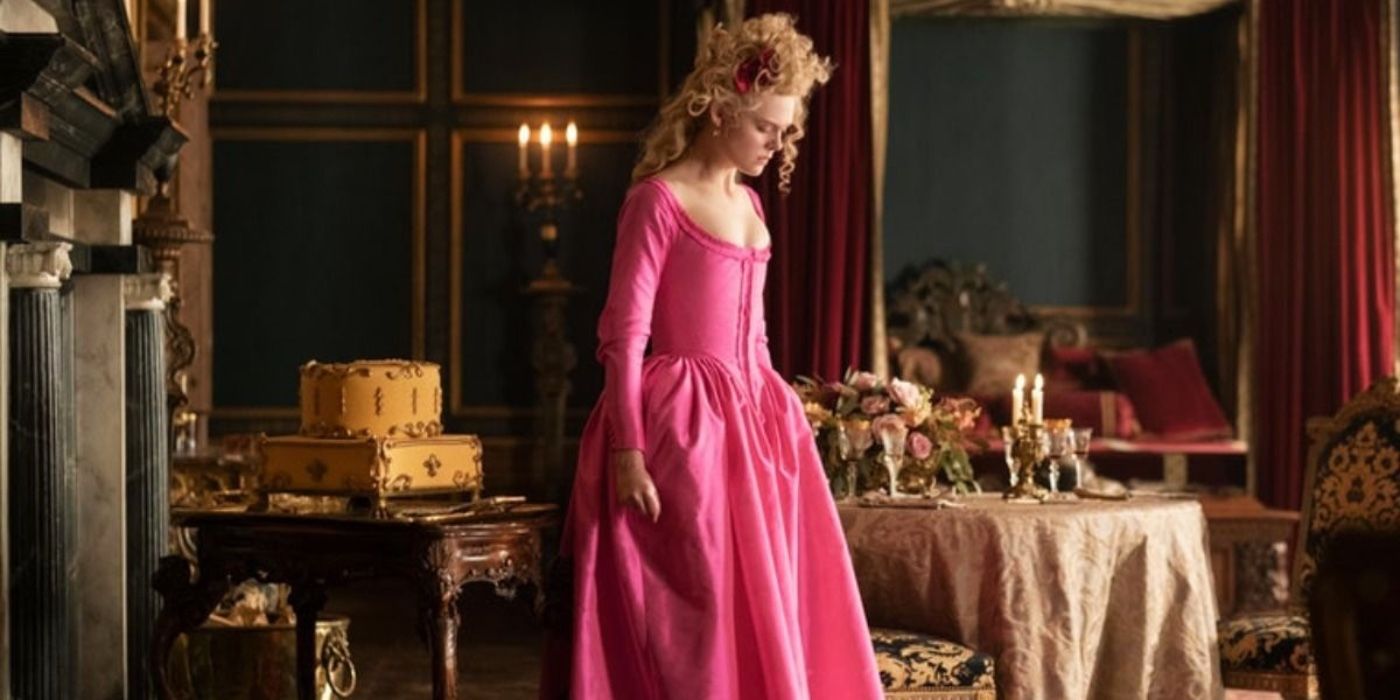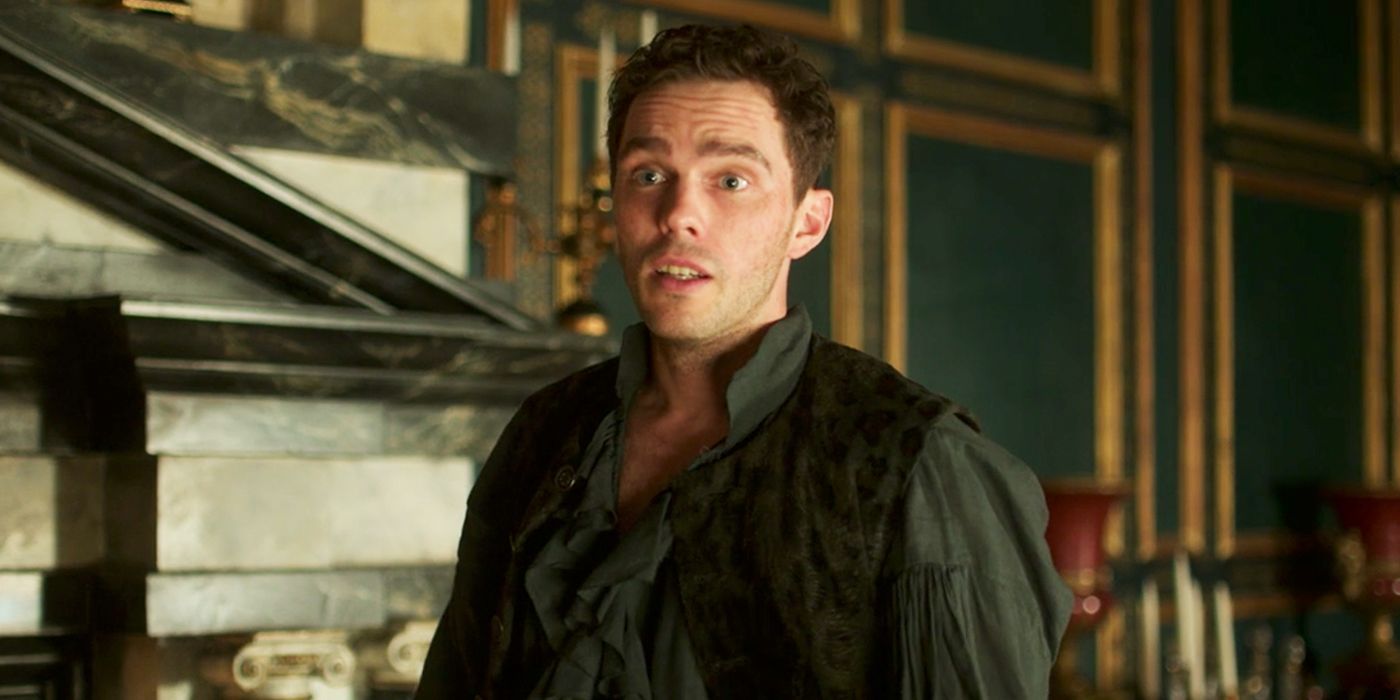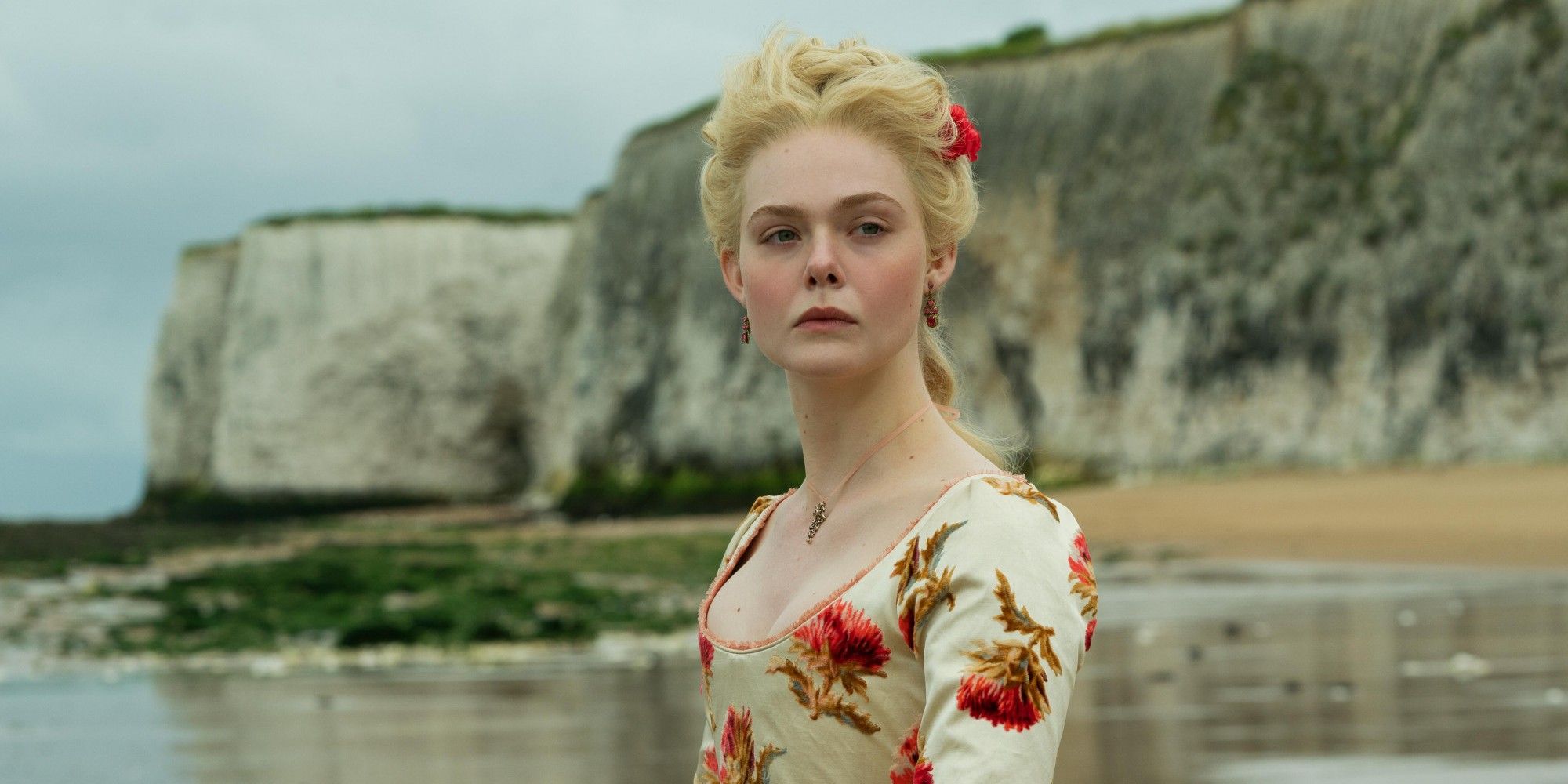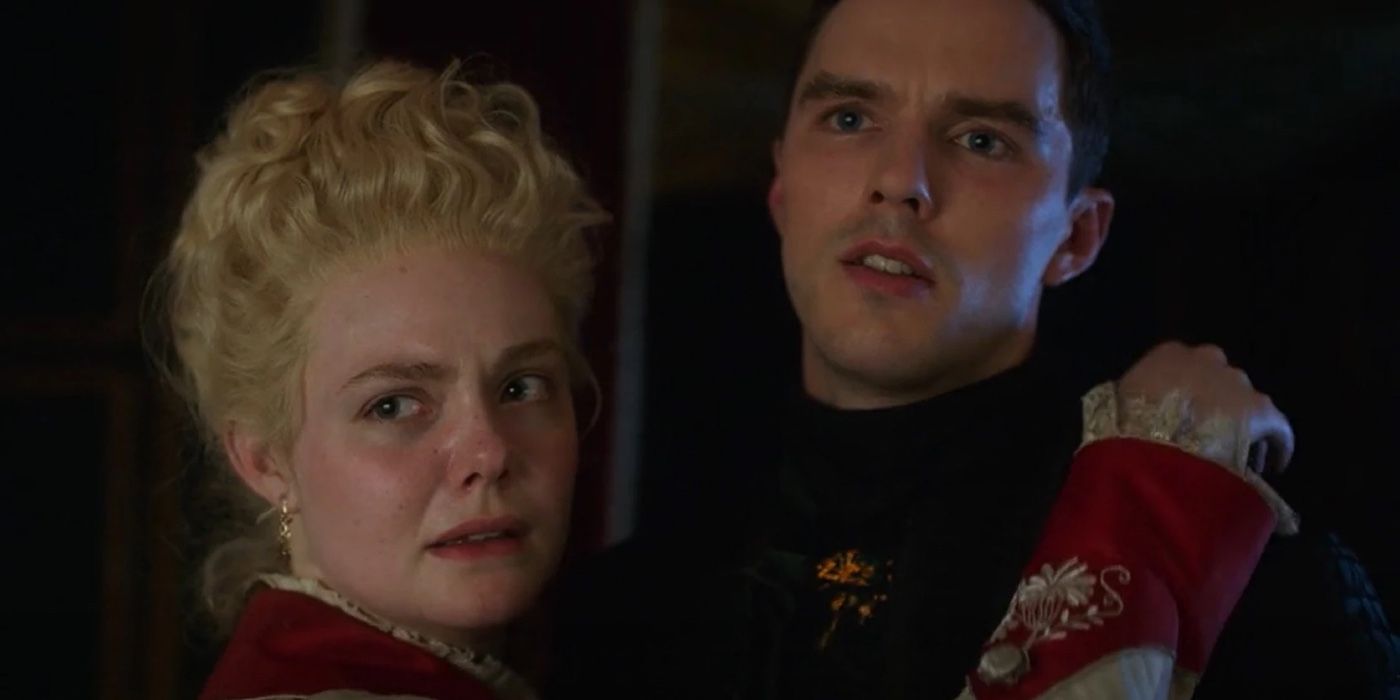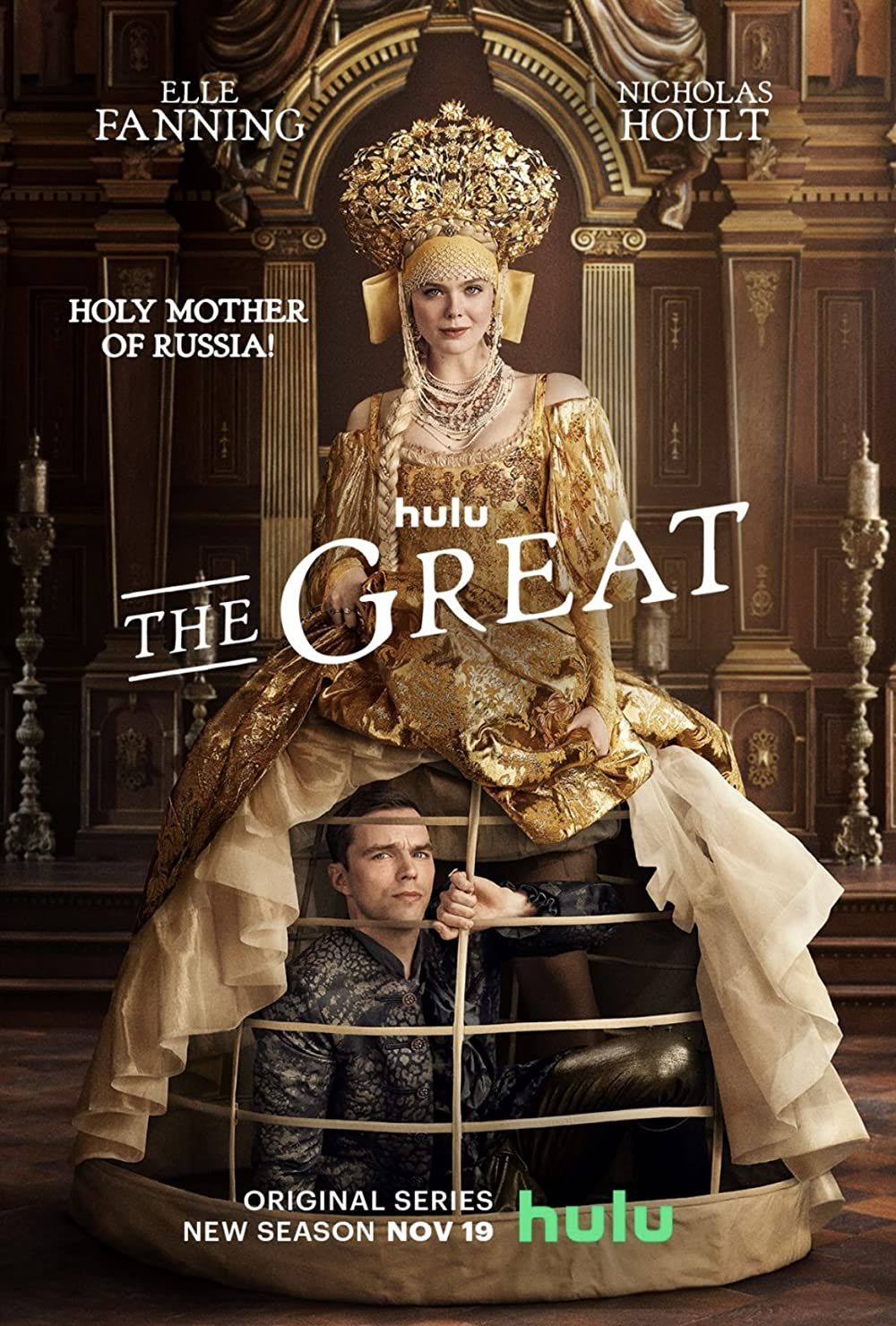15 Things In The Show That Are Historically Accurate
Summary
-
The Great
balances historical accuracy with storytelling, incorporating factual elements from Catherine the Great’s life and reign while adding fictionalized elements. - The portrayal of Peter III’s struggles with alcoholism and Catherine the Great’s passion for education are accurate depictions based on historical records.
- Although some events are sensationalized or altered for dramatic effect,
The Great
captures the essence of Catherine the Great’s rise to power and her relationships with influential figures, such as her affairs and her desire to end serfdom.
Many wonder how much of The Great is true, as the Hulu original series detailing Catherine the Great’s rise to power often feels almost too bombastic to be taken from real life. The Great never claims to be 100% accurate, describing itself as an “occasionally” true story. However, many have difficulty differentiating between fact and fiction. The show put a unique spin on Catherine the Great’s life, adding many fictionalized elements or sensationalizing true events to such an extent that the level of historical accuracy in The Great is low — though it’s not absent.
The Great gets a surprising amount of historical details correct, despite never placing the truth above a chance to tell an interesting story. Many of the broad strokes of Catherine the Great’s life and reign were taken from historical accounts, meaning a great deal of what The Great showed did actually happen, although often not in the same way. While the black comedy-drama series is quite open with its fantastical artistic interpretations of Russian historical events and characters, several aspects of The Great are grounded in real historical facts.
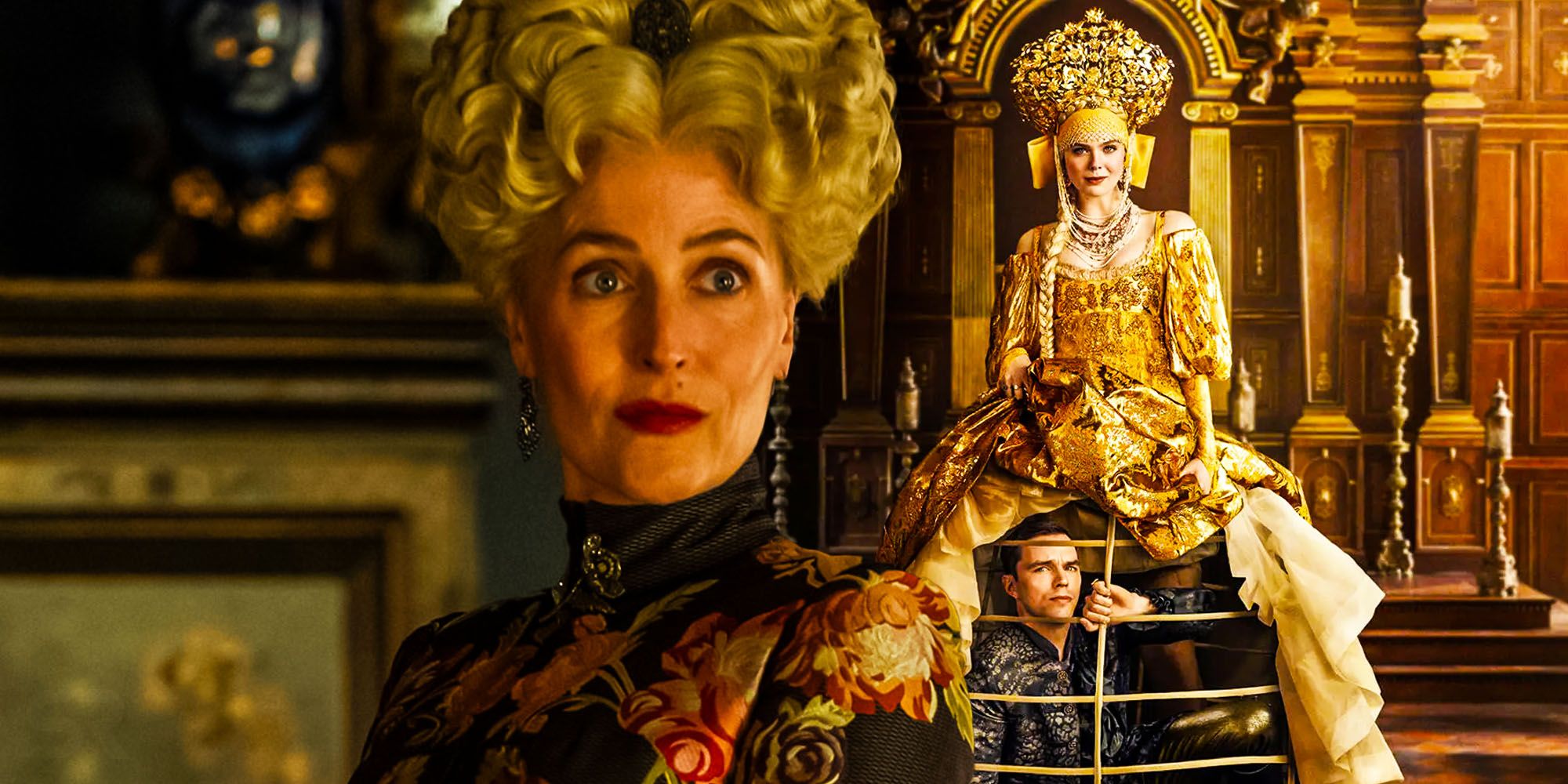
Related
The Great Season 2 True Story: How Much Is Real
The Great says that it is “an occasionally true story,” but what does that mean? Here’s which parts of The Great season 2 are historically accurate.
15 Peter III Struggled With Alcoholism
Nicolas Hoult’s The Great Character Was Also Very Neurotic
One surprisingly historically accurate element of The Great has to do with Peter’s excessive alcohol consumption. Audiences watching The Great are aware that Peter III is constantly seen with a glass in hand and often in attendance at some wild parties. This added to his unpredictable and boisterous personality in the show while also giving Hoult another avenue to explore the character’s funnier moments.
This was historically accurate, as the real Peter III struggled with alcoholism, and this show helps depict this side of him very well. In fact, this is a problem that plagued many Russian tsars throughout history to the point where they would encourage drinking among those around them, He is also described in historical texts as being quite neurotic, which the show also portrays as he has an affinity for killing rather than seeking out the truth.
14 Catherine The Great Was Well-Read
Catherine Even Taught Others How To Read
At the time of her reign, most women weren’t allowed to be well-educated, something that was considered unnecessary (and even unattractive in women) and which allow men to claim a superiority over them. However, Catherine the Great was a well-read woman as she enjoyed various texts throughout her life, especially ones that would guide her as a future empress. This is depicted in The Great, as she is always seen with a book in hand and even helps teach a young serf how to read.
It also speaks of her intelligence and likability as one of The Great‘s best characters, as much of what she read helped her create plans and ideals that she would one day instill in Russia. It is also a sign of how she was unwilling to limit herself to the conventions of the day.
13 Ivan VI Was Really Killed
The Great Only Changed The Circumstances
Something else that The Great gets right is Ivan the VI’s death. However, he didn’t quite die in the same way as The Great shows in season 3. Audiences first met Ivan VI when rumors circulated in the show that Peter III’s half-brother was still alive and could stake a claim to the throne. He was killed during the coup that put Catherine the Great into power, but not in the way that the show depicts.
In reality, Ivan VI was in his 20s when those against Catherine’s rule attempted to break him out of the prison he was being kept in for the majority of his life. However, with Catherine the Great taking power, the order was given out that Ivan was to be immediately murdered if there was any attempt to help him escape. Though it was several of the guards who staged the attempted breakout, they could not free him before those orders were carried out.

Related
The Great Season 3’s 10 Biggest Unanswered Questions
The Great season 3 had many twists, surprises, and schemes, but above all, it left audiences with major questions leading into a potential season 4.
12 Catherine The Great Wanted To End Serfdom
The Real Catherine Actually Strengthened The System In The End
Catherine the Great’s reign caused some serious upheaval, especially with some of the bigger changes she looked to make. When Peter III fell ill, Catherine the Great had her first taste of power. With this newfound position and authority, she mentions her desire to end serfdom, freeing many of the so-called peasants from their debts and lives of indentured servitude. The council laughs at her and explains the economic consequences it would have on their society.
This relates to the real ruler as she desired to end this practice, but in the end, it wasn’t a practical goal. She needed the support of the nobles who owned them to stay in power and ending a practice that benefited them so much was not a political move that she was willing to make. She eventually even strengthened the system that she originally sought to destroy.
11 The Real Catherine The Great Loved European Philosophy
Catherine Read Books By Philosophers In The Age Of Enlightenment
It was already mentioned how Catherine the Great loved to read, but many of her choices focused on the philosophers of the Age of Enlightenment. This was another way Catherine was able to stand out among the characters in The Great. Where many of them were concerned with appearing like they knew everything, Catherine sought to expand her way of thinking and look at things in a new way.
This is another historical accuracy that The Great offers to audiences, as European philosophy played a huge part in her reign. The Great had her even meeting one of her favorites — the French writer and philosopher Voltaire — and she often mentions several others throughout the series. It is also historically accurate that these European philosophers helped to shape the reforms that she attempted to implement in Russia.
10 Peter III Wanted To Be A Great Military Leader
The Real Peter Sought Glory In Battle
Peter III did some truly terrible things in The Great which are largely caused by his fragile and childish ego. He’s also depicted as someone who’s yearning for any sort of military win and accomplishment, which is exactly how he was during his life as well. It is another way the character comes off as a pathetic and desperate villain with Hoult leaning into the most detestable aspects of the character. The show even has Peter III taking medals from Velementov to make himself look more successful than he is in this endeavor.
One of the biggest historical accuracies in The Great is Peter’s ambition to become a military hero. He wanted to be a military legend who won battles and had numerous victories that proved his worth as emperor. In contrast to Catherine’s expansive learning, his reading was known for focusing exclusively on military subjects.
9 Catherine The Great Gained The Support Of The Military & Nobility
The Real Catherine Had An Affair With An Officer To Help Her Rise To Power
A major part of the coup that Catherine the Great planned throughout The Great involved her obtaining the support of various groups. Integral to her seizing power were the military and nobility, which is historically accurate to the real Catherine. It was also another way of Catherine proving herself to be the more impressive leader compared to Peter. While he envisioned himself as the ultimate military leader, it was a very satisfying affront to him that she was the one who gained military support.
The real empress made sure to secure the military by having an affair with one of the officers who ensured her ascension was secure. She also had the nobility already under her control, as she had already been married to Peter III for years before he became emperor, although he was forced out in just six short months.
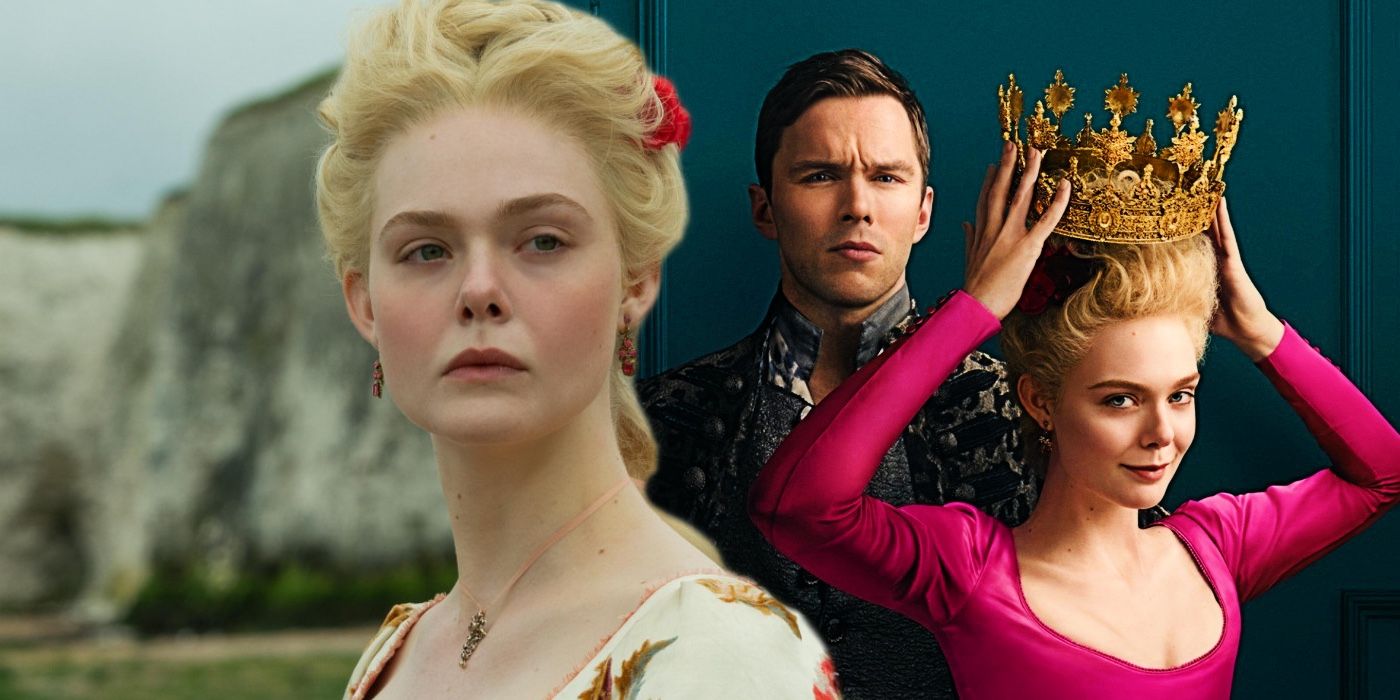
Related
The Great Season 4: Cancellation, Renewal Chances & Everything We Know
Hulu’s witty historical black comedy series The Great chronicles the rise of Russian Empress Catherine the Great, but will there be a season 4?
8 Catherine The Great Had A Lover
The Real Catherine The Great Courted Several Men
Leo Voronsky features in The Great as Catherine’s lover, but the truth is that she had several throughout her lifetime. In the series, Leo is hired by Peter himself to be Catherine’s lover. There is a strong bond between them with his good-natured personality being what Catherine needs in this world. However, their relationship ends in tragedy when Peter has Leo killed in order to demonstrate his power to Catherine.
Leo himself did not exist, but history does tell that she had at least three different lovers, making this part of the story historically accurate. It could be said that Leo in The Great is just a summary of these suitors rather than any specific man. One notable romance was with a military officer during the time of her coup, Gregory Orlov, who is the most prominent in her historical love life.
7 Catherine The Great’s Heir Was Named Paul
Paul Went On To Become Emperor
The final episode of season one of The Great shows a pregnant Catherine the Great, and she mentions to Peter III how she will name him Paul. Catherine the Great ended up having three children over her lifetime, but one of the historical accuracies in The Great was the name of her true-born heir.
Paul was born in 1754 and was crowned as prince in 1762 following the death of Empress Elizabeth. The mother and son developed a fierce rivalry for the throne following the death of Peter II with Paul believing he was the rightful heir. Paul eventually became the emperor following Catherine the Great’s reign, taking the throne at the age of 42. It ended up being a relatively short reign for the new ruler as he was assassinated at the age of 46.
6 The Coup Had Peter Abdicating His Throne
The True Story Of The Great Was Slightly Different, But The Result Was The Same
The entire focus of The Great is Peter III’s fall from grace as he is forced to abdicate his throne and have his wife Catherine rule in his stead. With Peter being such an unlikeable villain in the series, it was a storyline that proved compelling and satisfying as Peter witnessed all his power slip away and fall into the hands of his wife. The Great saw a successful coup in season 1, resulting in Peter III stepping down.
The real Peter III was forced from his position as he abdicated his throne, which is exactly what Catherine the Great suggested he do at the end of The Great’s final episode of season one. The coup itself didn’t quite play out the same way in real life, with Peter attempting to make an escape and his arrest being delayed by a full day, but the result was the same.
5 Pugachev’s Rebellion Really Happened
However, He Was Not Peter III’s Double
Nicholas Hoult’s Emmy-nominated work on The Great goes beyond just his performance as Peter III. He also plays Pugachev, one of Peter’s doubles who becomes his go-to solution for being able to move freely after being dethroned by Catherine. While the real Pugachev wasn’t a double for Peter III, disguising himself as Peter III and inciting the rebellion depicted toward the end of The Great season 3 did happen.
However, the real Yemelyan Pugachev never served Peter III and was a soldier in the Seven Years’ War. After being imprisoned for desertion he managed to escape and appeared east of the Volga River. Claiming to be Peter III, Pugachev declared serfdom was abolished and gained a following in planning to upend Catherine’s reign. During his siege on Orenburg, Catherine sent an army, and he was subsequently defeated.
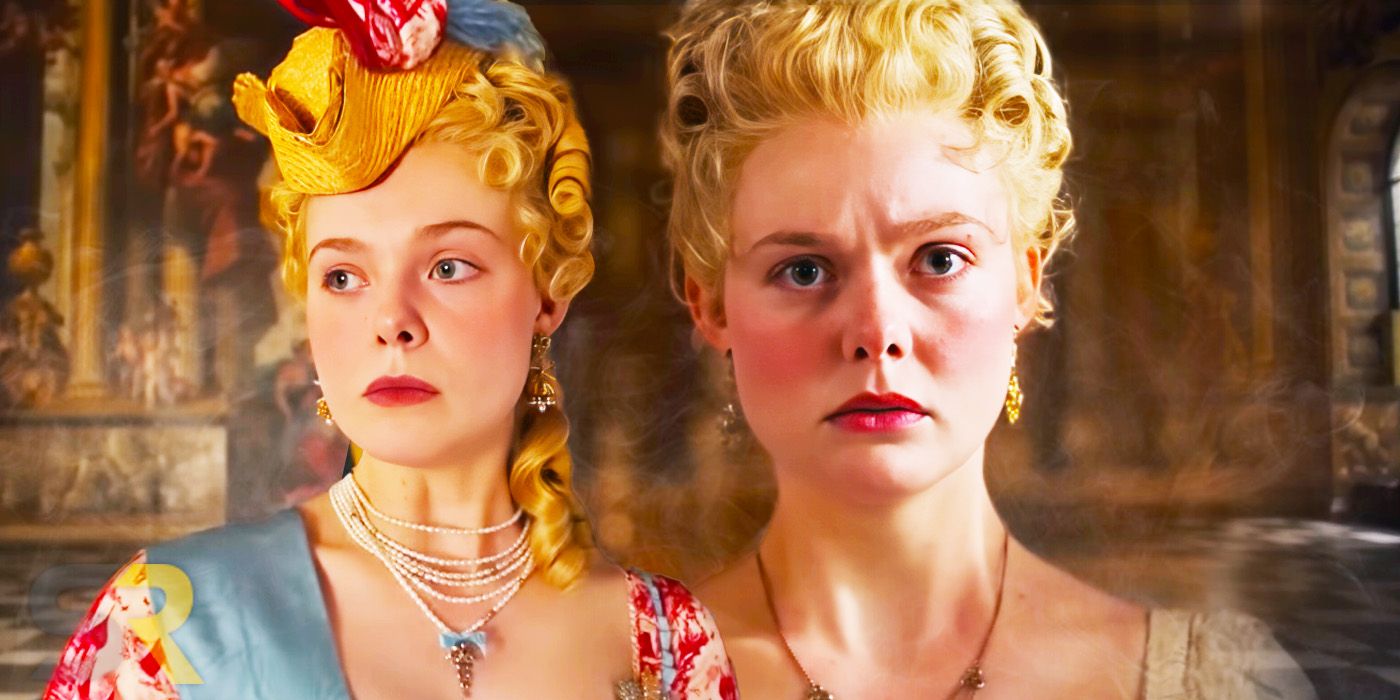
Related
The Great Season 3 Ending Explained
The Great season 3 was the series’ darkest, most intense season yet and had plenty of shocking moments and serious questions that need unpacking.
4 Catherine The Great Was A Target Of Gossip
The Rumors Were Based In Historic Misogyny
One thing that’s historically accurate in The Great is the misogynistic narrative that undermines Catherine’s leadership. Though Catherine is a strong and barrier-pushing character whose fearlessness is strengthened by Ell Fanning’s performance, she does have to contend with vile attacks from those who are uncomfortable with a woman in a seat of power.
Much like in the series, Catherine the Great was the subject of constant gossip and lies, some of them ranging from believable to far-fetched, like the rumor that she died by trying to have sex with a horse. Since being a woman in power was so unheard of at the time, rumors ran rampant about her personal life and sexual exploits. It was so prevalent that Catherine the Great decided to write a series of memoirs to posthumously dispel the falsehoods surrounding her legacy.
3 Peter III Really Died After Catherine Took Over
However, Peter III’s Death Was Very Different In Real Life
Peter III’s death in The Great season 3 was a shock — but not for those who know history. While the means and method of his death in The Great diverged greatly from history, Peter III did pass away shortly after Catherine took the throne and before Pugachev’s Rebellion. In the series, Peter III drowns while trying to cross a frozen lake. In real life, Peter III was arrested after his abdication. It is a fitting end for the character, robbing him of much of the dignity he attempted to hold onto so fiercely.
In reality, Peter’s death was not as dramatic and more of a drawn-out event due to illness. While in custody with one of Catherine’s conspirators, Peter III died of an apoplectic stroke, although it’s possible this was a cover story for his assassination.
2 Catherine The Great Was Passionate About Women’s Education
Catherine Established The Smolny Institute For Daughters Of Noble Birth
Early on in The Great, Catherine approaches the royal court with numerous ideas for educational reform, including building a school that would educate women — a plan Peter III shuts down. While this storyline was beginning to evolve in the series, it will sadly remain one of the many unresolved stories following The Great‘s cancelation. However, there is a lot of historical context to explore on these efforts by Catherine.
While the incident itself may not have happened, Catherine the Great’s passion for educating women is historically accurate. In 1764, Catherine the Great established the Smolny Institute for daughters of noble birth in St. Petersberg, which was the first educational institution for women in Russia. Catherine the Great was largely responsible for the Westernization of Russia, and education reform was one of her biggest pillars.
1 Catherine Launched Inoculation In Russia
The Real Catherine The Great Believed In Science
In season 1 of The Great, the royal court experiences a smallpox outbreak and Catherine hears about a treatment called inoculation. She inoculates herself in front of the royal court, only to have Peter III ban inoculation shortly thereafter. It is seen as one of her most heroic moments, defying the fears of the time and helping to encourage those of the nation to take a more proactive approach to their well-being.
In reality, Catherine was a lover of science and was particularly impressed with the work of the British-based Dr. Thomas Dimsdale, who was working on a smallpox vaccine. She had Dimsdale travel to Russia to give both her and Paul the vaccine. This caused a domino effect, and according to Robert K. Massie’s Catherine the Great: Portrait of a Woman, by 1800 over 2 million Russians had been vaccinated.




